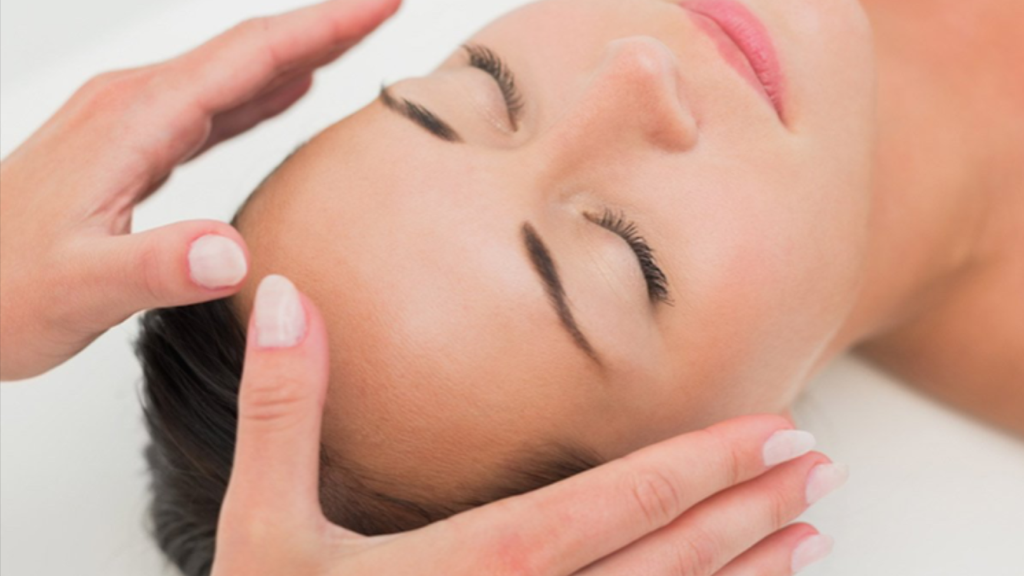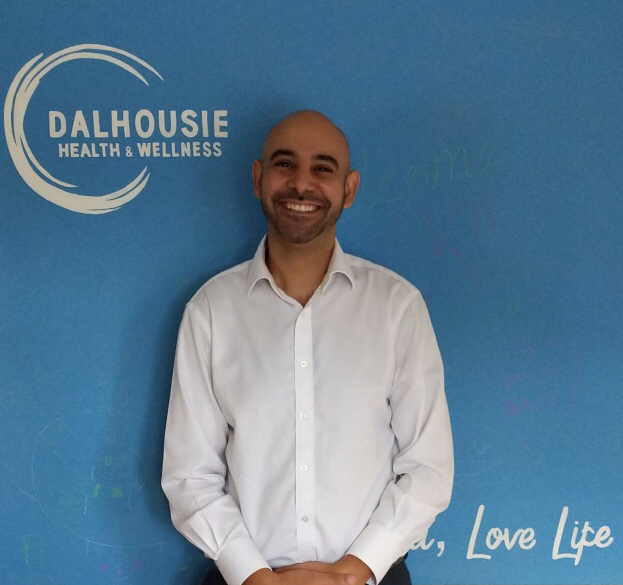|
Every week I hear the same question, “What is reiki?”
It doesn’t surprise me in the least. Reiki is not as common as its sister therapy, acupuncture. It is a bit more ‘mysterious’ and unknown. But don’t let that fool you. In essence, reiki is an effective and gentle way to increase the body’s ability to heal more efficiently while decreasing the physiological and emotional effects of stress. Not bad right? But how? Reiki is performed while the client rests laying down. The practitioner manipulates the body’s energy field by gently laying hands on and above areas of the body. This positively affects energetic flow and vibration of the main energy centers, allowing for more balance and relaxation. Just as acupuncture helps clear the many lines of energy through the body (known as meridians), reiki helps clear the 7 major energy centers (known as chakras). Why do I need energy cleared and balanced? Einstein himself has said, “Everything in life is vibration”. At the deepest level of our being, we are energetic. Each atom, the building blocks of our body, breaks down to vibrational energy. When we treat the body at this foundational level, every aspect of health is influenced. If I were a piece of music, what would I sound like? This is one of my favourite questions. Once we understand that we are vibration and frequency, we can think in terms of music. We are so much more than we ever believed ourselves to be! At any moment we are sending out a signal, an energetic signature. Have you ever been around someone who makes you feel lighter and happier just by being in their presence? And we all know those people who make us feel heavier and more negative. This is the work of energy. Our music resonates with some and not others. We can be a beautiful symphony or fall into disharmony and imbalance, living slightly off key so to speak. By the end of a reiki treatment, the goal is to have the ‘instruments’, or energy centers, playing in tune with each other. So how is this a secret weapon for optimal health? Science based research has shown that reiki activates the parasympathetic nervous system which increases the body’s ability to rest and heal while reducing symptoms of depression and anxiety. Because of this, reiki is an excellent complement to ongoing treatments of chronic illness and pain such as chemotherapy, chiropractic and naturopathic care. I like to think of reiki as one of the best defenses against stress. When receiving regular treatment, the physical and emotional body becomes resilient. Decreased inflammation and decreased blood pressure are only the beginning. Reiki increases immunity and increases feelings of self-worth and compassion as well. Once the body enters deep relaxation, the body naturally frees up energy for healing. Because of this, reiki is a wonderful preventative treatment as well. So whether presently suffering from chronic issues or just looking to stay healthy and balanced, reiki is an excellent choice for self-care and is now available at Dalhousie Health & Wellness. Reiki truly is you secret weapon to optimal health!
0 Comments
Shoulder Pain at NightNight pain is a commonly encountered symptom for patients with shoulder injuries. Night pain is of great importance as it disturbs sleep and diminishes quality of life. Good quality sleep is of utmost importance to all of us! Without proper sleep we may be less active during the day, have a lower threshold for dealing with stress and injury, mental exhaustion and even delayed healing. There are many conditions associated with night pain in your shoulder such as: bursitis, rotator cuff injuries, adhesive capsulitis [frozen shoulder], osteoarthritis and tendinosis to name a few. The cause of pain in these conditions can be divided into three major subtypes: movement related, compression and inflammatory Movement Related Shoulder PainWhen we injure the muscles, ligaments or tendons in the shoulder it may cause a decreased range of motion, which means that certain movements become difficult and painful. Our unconscious bodies may toss and turn at night causing us to move our shoulder in a painful direction, waking us up and disturbing our sleep. Compression and Shoulder PainDid you know that most of us are side sleepers? Often patients tell me that they usually sleep on the side of their injured shoulder. Changing our sleeping position can be very challenging, however laying on the same side as the injury can further aggravate your pain and discomfort. Making efforts to avoid compressing the injured tissues is also recommended as a way to speed up healing times. Inflammation and Shoulder PainSome of my patients report that no matter how little or how much they move around, whether they sleep on their backs or sides, they just cannot relieve their shoulder pain at night! This night time aching that does not seem to be positionally related is the most perplexing and frustrating for patients. Researchers have found that this type of night pain is related to increased blood flow through the arteries of the shoulder suggesting an increase in inflammation. So, What is the Best Way to Sleep When my Shoulder Hurts at Night?The best option is always to consult a health care professional for a proper assessment, diagnosis and individualized treatment. Your health care provider may suggest some of the following depending on your specific type of shoulder injury and cause of the night pain: 1. Use a pillow to restrict your movement: If you are concerned about moving in a painful direction or rolling onto your shoulder, placing a pillow behind you may help prevent you from turning over. 2. Avoid sleeping on the side of the injury: Sleeping on your back, opposite side or even using a wedge pillow to elevate your shoulders may relieve some of your discomfort. 3. Perform your prescribed stretches and rehabilitation exercises. A health care professional can prescribe therapeutic exercise to relieve pain, stiffness and improve your range of motion. 4. Icing. Using ice or other anti-inflammatory measures before bed as prescribed can help delay the onset of pain and allow you to fall asleep faster. 5. Avoid any activities which are likely to worsen your pain. Knowing your limits and decreasing overall irritation will also aid in a faster recovery. 6. Practice good sleep hygiene. Try to go to bed at the same time every night. Reduce fluid intake and avoid caffeine, nicotine and alcohol before bed. Turn off electronics at least 30 minutes prior to bed. If you’re experiencing persistent pain, restricted or painful motion, night pain or shoulder issues which are affecting your quality of life, please make sure to consult your chiropractor, doctor, massage therapist, physiotherapist or other trusted health care professional Visit your chiropractor for guidance, diagnosis and treatment of shoulder injuries and shoulder pain. Your Dalhousie Health & Wellness team is read to help your shoulder pain!
Dr. Pepper has a special interest in the treatment of children, adolescents and adults with concussion. Much of my time treating concussions is spent answering questions and providing education. Despite the surge in interest, many questions and misconceptions linger around the topic of concussion. The following are some of the most common myths I hear about concussion in my office. You have to hit your head to have a concussionPeople commonly believe that you need to hit your head to have a concussion and that the harder the hit the worse the concussion. Neither of these statements are true. A concussion can be sustained by hitting your head, but also by a rapid acceleration-deceleration or your head or a coup-countercoup motion. This kind of injury can be produced in a car accident, a fall or even a hit to the body. We also see in practice that the degree of the injury does not correlate well to the number or intensity of symptoms. You need to lose consciousness to have a concussionLoss of consciousness is not a diagnostic criteria for concussion, in fact it occurs in less than 10% of concussion cases. Although it seems logical that a loss consciousness would indicate a more severe concussion this is also not the case. It is always important to report loss of consciousness to your health care provider but it may not be a reliable indicator in determining if you have a concussion or how severe the symptoms may be. You have to keep someone with a concussion awakeSleep is actually vitally important in concussion recovery. This misconception is likely a result of advice that is intended for those with bleeding in their brains. Brain bleeds are very rarely associated with concussion. If the patient has been assessed by a health care professional and a bleed has been ruled out, it is safe for them to sleep. When you sustain a concussion your brain is suffering from an energy crisis and adequate sleep can help restore your brain’s energy. However, daytime sleeping and excessive napping is discouraged, try to get your restorative sleep at night. You will have symptoms from your concussion right awayAlthough concussion symptoms may come on right away, they are often delayed. Some symptoms may take hours or even days to appear after the initial injury. In the time following a concussion the brain is more susceptible to injury, this is why we say “when in doubt, sit them out”. Returning to play before a concussion is healed and sustaining a second injury may lead to Second Impact Syndrome which is a very serious complication that causes neurological impairment, brain swelling, coma and possibly death. For more information on this please read up on Rowan’s Law which is legislation designed to protect those with head injuries. All physical activity should be avoided, you need complete restAn initial period of complete rest may be recommended for 0-48 hours post injury. Following this, light aerobic activity is highly recommended. Research demonstrates that light activity is
associated with faster recovery than complete rest. Your health care provider will assess your individual case and make recommendations based on your symptoms. Usually a short walk or stationary biking are preferred. As your symptoms improve your health care provider will include rehabilitation exercises and slowly re-introduce you to your previous activities. Incremental exposure to your normal demands will be a critical part of your return to work/play or school plan. |
Archives
May 2024
|




 RSS Feed
RSS Feed